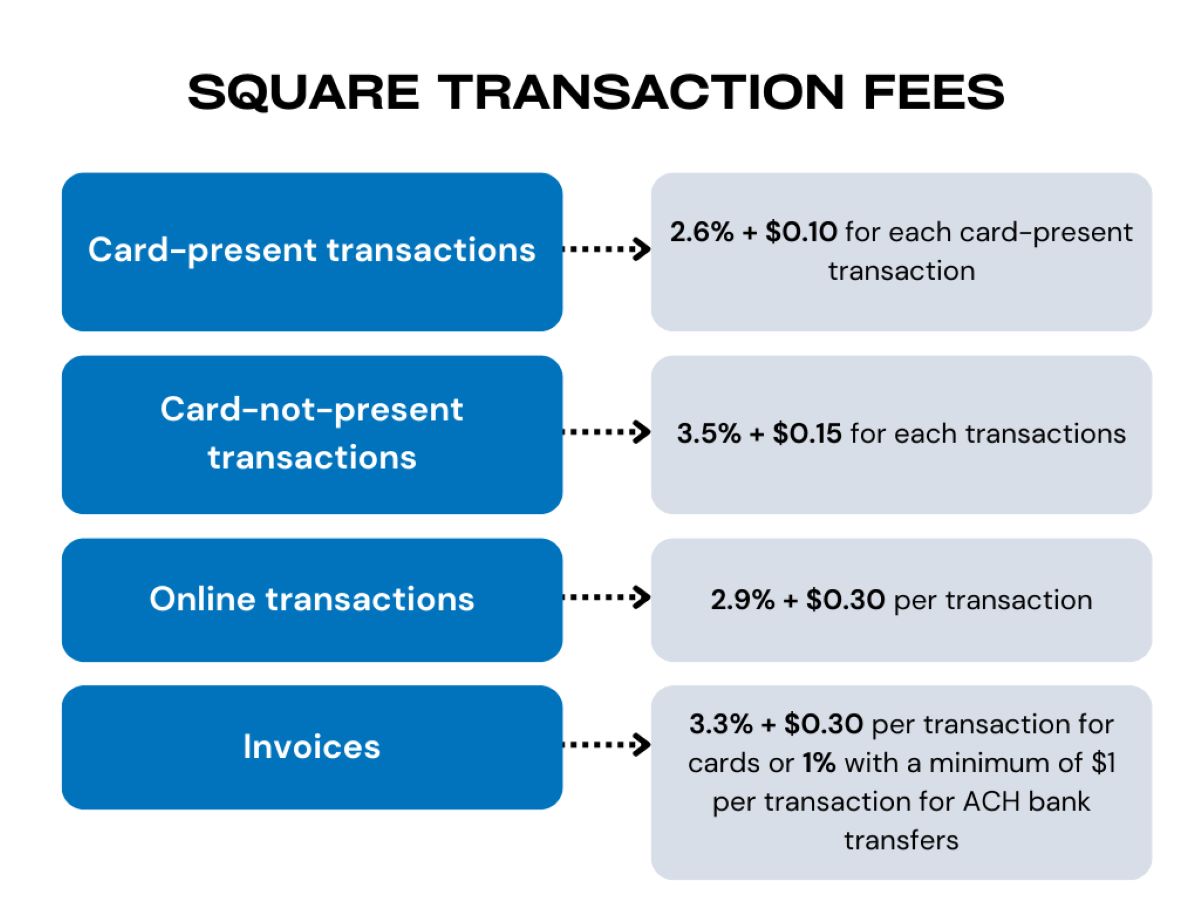

Finance
What Is The Credit Card Merchant Fee
Published: February 23, 2024
Learn about credit card merchant fees and how they impact your finances. Understand the costs and factors involved in processing credit card transactions. Discover ways to minimize merchant fees and optimize your financial strategy.
(Many of the links in this article redirect to a specific reviewed product. Your purchase of these products through affiliate links helps to generate commission for LiveWell, at no extra cost. Learn more)
Table of Contents
Introduction
Understanding Credit Card Merchant Fees
Credit card merchant fees are an essential aspect of conducting business in today's digital economy. As more and more transactions occur through credit and debit cards, understanding the intricacies of merchant fees is crucial for businesses to effectively manage their finances. In this comprehensive guide, we will delve into the world of credit card merchant fees, exploring their significance, factors affecting them, methods of calculation, and strategies for negotiation. By the end of this article, you will have a clear understanding of credit card merchant fees and the tools to navigate this aspect of financial management with confidence.
In the modern marketplace, credit card transactions have become the norm, offering convenience and security for both consumers and businesses. However, behind every successful transaction lies a merchant fee, which is the cost incurred by businesses for accepting credit and debit card payments. These fees are charged by payment processors, such as banks and financial institutions, for their services in facilitating electronic transactions.
Understanding the intricacies of credit card merchant fees is crucial for businesses of all sizes. Whether you operate a small retail store or manage a large e-commerce platform, the impact of merchant fees on your bottom line cannot be overlooked. By gaining insight into the factors influencing these fees and learning how to navigate the process of negotiation, businesses can optimize their financial operations and enhance profitability.
Throughout this guide, we will explore the various components of credit card merchant fees, shedding light on the complex yet essential elements that underpin the modern payment ecosystem. From interchange fees to assessment charges, each aspect plays a pivotal role in shaping the cost of processing credit card transactions. By unraveling the intricacies of these fees and providing actionable insights, this guide aims to empower businesses to make informed decisions and maximize their financial efficiency.
In the following sections, we will delve into the factors that influence credit card merchant fees, the methods for calculating these fees, and strategies for negotiating favorable terms with payment processors. By equipping businesses with this knowledge, we aim to demystify credit card merchant fees and provide a valuable resource for navigating the complexities of modern payment processing.
Understanding Credit Card Merchant Fees
When a customer swipes a credit or debit card to make a purchase, a series of behind-the-scenes processes come into play, and one of the outcomes is the imposition of credit card merchant fees. These fees are the charges incurred by businesses for accepting electronic payments, and they encompass a variety of components that collectively contribute to the overall cost of processing transactions.
One of the primary components of credit card merchant fees is the interchange fee, which is set by the card networks, such as Visa, Mastercard, and American Express. This fee is paid by the merchant’s bank to the customer’s bank as compensation for the acceptance of the card and the associated risk. The interchange fee is influenced by factors such as the type of card used, the transaction amount, and the industry of the merchant.
Another significant aspect of credit card merchant fees is the assessment fee, which is charged by the card networks for their services. These fees contribute to the maintenance and development of the payment infrastructure, including fraud prevention measures, customer support, and the advancement of payment technologies. Additionally, payment processors, such as banks and third-party service providers, levy their own fees for facilitating transactions and managing the associated risks.
Understanding the breakdown of credit card merchant fees is essential for businesses to comprehend the cost structure of accepting electronic payments. By gaining insight into the various components of these fees, businesses can assess the impact on their profitability and make informed decisions regarding pricing strategies and financial management. Furthermore, awareness of credit card merchant fees empowers businesses to explore opportunities for optimizing their payment processing methods and minimizing costs.
As the landscape of payment processing continues to evolve with technological advancements and shifting consumer preferences, the dynamics of credit card merchant fees also undergo changes. Businesses must stay informed about industry developments and regulatory updates that may influence the structure and transparency of merchant fees. By remaining proactive and adaptable, businesses can navigate the complexities of credit card merchant fees and position themselves for financial resilience and growth in the digital economy.
Factors Affecting Credit Card Merchant Fees
The cost of credit card merchant fees is influenced by a multitude of factors, each playing a distinct role in shaping the overall expense of processing electronic payments. Understanding these factors is crucial for businesses to grasp the nuances of merchant fees and implement strategies to manage and optimize these costs effectively.
- Card Type: The type of credit or debit card used in a transaction significantly impacts the merchant fees. Premium cards, such as those offering rewards and travel benefits, often entail higher interchange fees, thereby increasing the cost for businesses accepting these cards.
- Transaction Method: The method through which a transaction is processed, whether it is conducted in-person, online, or via mobile devices, can influence the associated merchant fees. Card-not-present transactions, such as those in e-commerce, generally carry higher fees due to the elevated risk of fraud and disputes.
- Industry and Business Type: The nature of the business and the industry in which it operates can affect merchant fees. High-risk industries, such as travel and subscription services, may face higher fees due to the increased likelihood of chargebacks and fraud.
- Transaction Volume: The volume of credit card transactions processed by a business can impact the negotiated merchant fees. Higher transaction volumes may provide leverage for businesses to negotiate more favorable terms with payment processors.
- Payment Processor: The choice of payment processor, whether it is a bank, merchant services provider, or third-party payment gateway, can influence the structure and magnitude of merchant fees. Different processors offer varying fee structures and levels of service, necessitating careful evaluation by businesses.
By comprehending the factors that contribute to credit card merchant fees, businesses can devise informed strategies to mitigate costs and optimize their payment processing operations. Whether through targeted negotiations with payment processors, the implementation of risk management measures, or the adoption of efficient transaction processing methods, businesses can proactively address the factors affecting merchant fees and enhance their financial performance.
Calculating Credit Card Merchant Fees
Understanding the method for calculating credit card merchant fees is essential for businesses to assess the impact of these costs on their financial operations. The calculation of merchant fees involves multiple components, each contributing to the overall expense of processing credit and debit card transactions.
One of the primary factors in calculating merchant fees is the interchange rate, which is determined by the card networks and varies based on factors such as the type of card used, the transaction amount, and the industry of the merchant. The interchange rate is a percentage of the transaction value, often accompanied by a flat fee. Additionally, card networks and payment processors levy assessment fees, which are typically calculated as a percentage of the transaction amount.
When calculating credit card merchant fees, businesses must also consider ancillary charges, such as gateway fees for online transactions, statement fees, and chargeback fees. These additional costs contribute to the overall expense of payment processing and should be factored into the calculation of merchant fees.
It is important for businesses to assess the cumulative impact of these fees on their revenue and profitability. By analyzing the cost structure of credit card merchant fees, businesses can identify opportunities to optimize their payment processing methods, negotiate favorable terms with payment processors, and implement strategies to mitigate expenses.
Furthermore, the calculation of merchant fees extends beyond the numerical aspects and necessitates a comprehensive understanding of the business’s specific transaction patterns, industry dynamics, and customer preferences. By aligning the calculation of merchant fees with the broader strategic objectives of the business, organizations can make informed decisions regarding pricing, payment acceptance policies, and customer experience enhancements.
Ultimately, the calculation of credit card merchant fees is a multifaceted process that requires businesses to consider not only the numerical components but also the strategic implications for their operations. By embracing a holistic approach to understanding and calculating merchant fees, businesses can position themselves to navigate the complexities of payment processing with financial acumen and agility.
Negotiating Credit Card Merchant Fees
Effective negotiation of credit card merchant fees is a strategic imperative for businesses seeking to optimize their financial performance and enhance profitability. By engaging in proactive discussions with payment processors and understanding the dynamics of fee structures, businesses can potentially secure more favorable terms and reduce the impact of merchant fees on their bottom line.
One of the key strategies for negotiating merchant fees involves leveraging transaction volume. Businesses that process a significant number of credit card transactions may have the opportunity to negotiate lower interchange rates and processing fees with their payment processors. By demonstrating a substantial transaction volume and the potential for long-term partnership, businesses can position themselves to seek advantageous fee arrangements.
Furthermore, businesses can explore the option of tiered pricing or interchange-plus pricing models when negotiating merchant fees. Tiered pricing structures categorize transactions into different tiers based on criteria such as card type and transaction method, offering the potential for more tailored fee arrangements. Interchange-plus pricing, on the other hand, provides transparency by separating the interchange fees set by card networks from the markup charged by the payment processor, enabling businesses to understand the components of their merchant fees more clearly.
Engaging in open and transparent communication with payment processors is essential during the negotiation process. By articulating the specific needs of their business, addressing concerns regarding fee structures, and exploring opportunities for collaboration, businesses can foster constructive dialogues that may lead to mutually beneficial fee arrangements.
Additionally, businesses should stay informed about industry developments and regulatory changes that may impact merchant fees. By remaining proactive and adaptable to evolving payment processing trends, businesses can position themselves to navigate the complexities of fee negotiation with a comprehensive understanding of the broader market dynamics.
Ultimately, effective negotiation of credit card merchant fees requires a combination of strategic foresight, data-driven insights, and collaborative engagement with payment processors. By approaching fee negotiation as a proactive opportunity to optimize financial operations, businesses can potentially secure more competitive fee structures and pave the way for sustainable growth in the digital economy.
Conclusion
In conclusion, credit card merchant fees are a fundamental aspect of modern business operations, shaping the cost structure of accepting electronic payments and influencing the financial performance of businesses across diverse industries. By gaining a comprehensive understanding of credit card merchant fees, businesses can navigate the complexities of payment processing with acumen and strategic foresight, ultimately optimizing their financial operations and enhancing profitability.
Throughout this guide, we have explored the intricacies of credit card merchant fees, shedding light on their significance, the factors influencing them, methods for calculation, and strategies for negotiation. From the impact of interchange rates and assessment fees to the nuances of fee negotiation, businesses have gained valuable insights into managing the cost of processing credit and debit card transactions.
It is imperative for businesses to remain proactive in assessing their payment processing methods, evaluating the impact of merchant fees on their financial performance, and exploring opportunities for optimization. By leveraging transaction volume, understanding tiered pricing models, and engaging in transparent negotiations with payment processors, businesses can potentially secure more favorable fee arrangements and position themselves for sustainable growth in the digital economy.
Furthermore, staying abreast of industry developments, regulatory changes, and technological advancements is essential for businesses to adapt to evolving payment processing trends and proactively address the dynamics of merchant fees. By embracing a holistic approach to understanding and managing credit card merchant fees, businesses can enhance their financial resilience, optimize customer experiences, and drive long-term success in an increasingly digital marketplace.
Ultimately, the effective management of credit card merchant fees empowers businesses to optimize their financial operations, enhance customer satisfaction, and capitalize on the myriad opportunities presented by the digital economy. By leveraging the insights and strategies presented in this guide, businesses can navigate the complexities of credit card merchant fees with confidence, strategic agility, and a commitment to financial excellence.














